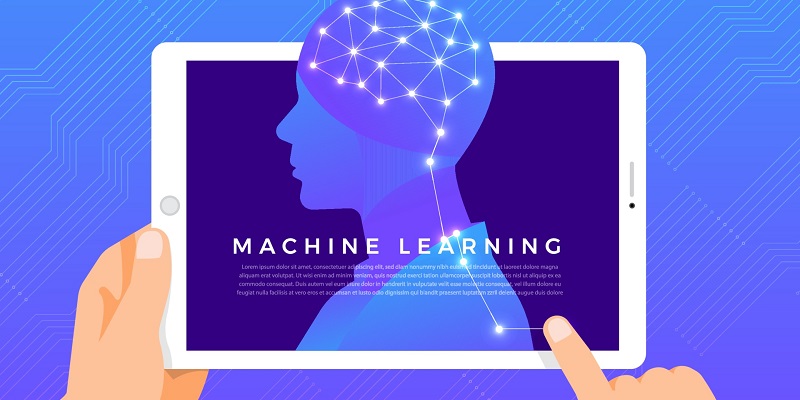Machine learning is a rapidly growing field in artificial intelligence (AI) that has gained widespread attention across numerous industries. It enables computers to make decisions and perform tasks without explicit programming, making it a valuable tool for businesses and individuals alike. In this article, we will explore what machine learning is and its importance, as well as best practices, specialized applications, and its potential in security.
What is machine learning?
Machine learning is a subfield of AI (Artificial Intelligence) that helps to train machines to make decisions or complete tasks independently by studying and learning from data. Machine learning algorithms analyze data, identify patterns, and learn from them to predict outputs based on inputs. These algorithms are designed to identify correlations and relationships within large data sets, which makes them highly valuable for businesses seeking to improve operations, productivity, and customer experiences.
How does it enable computers to learn and make decisions or perform tasks?
Machine learning enables computers to create algorithms that can learn on their own without human intervention. This is achieved through the use of artificial neural networks that are modeled after the human brain. These neural networks allow computers to analyze data, recognize patterns, and make decisions based on that data. They can also perform tasks similar to those performed by humans, such as image recognition, language translation, and natural language processing.
The Importance of Relevant Data
The key to a successful machine learning solution is having relevant data. The quality of the data used to train machine learning algorithms is critical to the success of those algorithms. The data must be both complete and accurate, and representative of the population it is meant to represent. Properly prepared and relevant datasets are necessary for the machine learning algorithm to learn, generalize, and ultimately perform accurately.
Best practices for machine learning solutions
To ensure the success of machine learning solutions, it is essential to adhere to model best practices such as using cross-validation techniques while training models and having a list of ML best practices handy for reference when developing ML solutions. Cross-validation is a process of testing an ML algorithm by dividing the data set into two or more parts and testing the algorithm against one part while training it on the remaining parts. This technique ensures that the model is not overfit to a specific set of data and that it can work well with unseen data. A list of ML best practices, on the other hand, provides guidance on how to implement the algorithms in a manner that ensures optimal performance, reliability, and accuracy.
Machine learning algorithms
Machine learning algorithms are smart programs that can predict output values based on input data. These algorithms can be used for a variety of applications, including image and voice recognition, recommendation systems, and predictive modeling. There are many different types of machine learning algorithms, each with its own strengths and weaknesses. Some of the most common types of machine learning algorithms include decision trees, K-Nearest Neighbor, support vector machines, and naive Bayes.
Deep learning algorithms
Deep learning algorithms are a form of machine learning that is used to create accurate models capable of predicting outcomes in various contexts. These algorithms are modeled on the structure and function of neural networks in the human brain, and they use layers of artificial neurons to analyze data and identify patterns. Deep learning algorithms are particularly useful in areas such as advanced image and speech recognition, sentiment analysis, and natural language processing.
Specialized Applications of Machine Learning
In addition to these general applications, specialized applications have been developed to identify patterns in financial data and power drug discovery. The financial industry has long been an early adopter of machine learning techniques. In this sector, machine learning is used for fraud prevention, identifying trading signals, and credit risk assessment. Machine learning also offers immense potential in drug development, where predictive modeling techniques can be used to improve the accuracy of clinical trials, resulting in faster, better, and more profitable drug discovery.
Machine learning in security
The ability to recognize patterns in real-time data and identify potential fraudulent activity is one of the most promising applications of machine learning in security. By analyzing large amounts of data and detecting anomalies in real-time, security teams can identify potential security threats, respond to them quickly, and minimize the impact of cybersecurity incidents. Through the use of machine learning, large-scale data analytics can be performed quickly and accurately, enabling companies to monitor the entire network and predict potential threats before they happen.
Regular neural networks and human-like tasks
Using regular neural networks, computers are able to learn patterns and perform human-like tasks such as customer service requests or product recommendations. These tasks can help businesses improve their customer experience and increase sales. For example, machine learning algorithms can be used to personalize recommendations for each customer based on their preferences, search history, and past purchases. Similarly, natural language processing techniques can be used to automate customer service requests, improving response times and increasing customer satisfaction.
Machine learning offers an amazing range of toolsets for data scientists, researchers, and developers. With its ability to quickly analyze large amounts of data and identify patterns, machine learning has the potential to revolutionize numerous industries, including finance, healthcare, retail, and security. It is important, however, to adhere to best practices and use relevant data when developing machine learning solutions to ensure success. As machine learning continues to evolve and grow, its impact on business and society will continue to expand, and we can expect to see many exciting advancements in the coming years.

